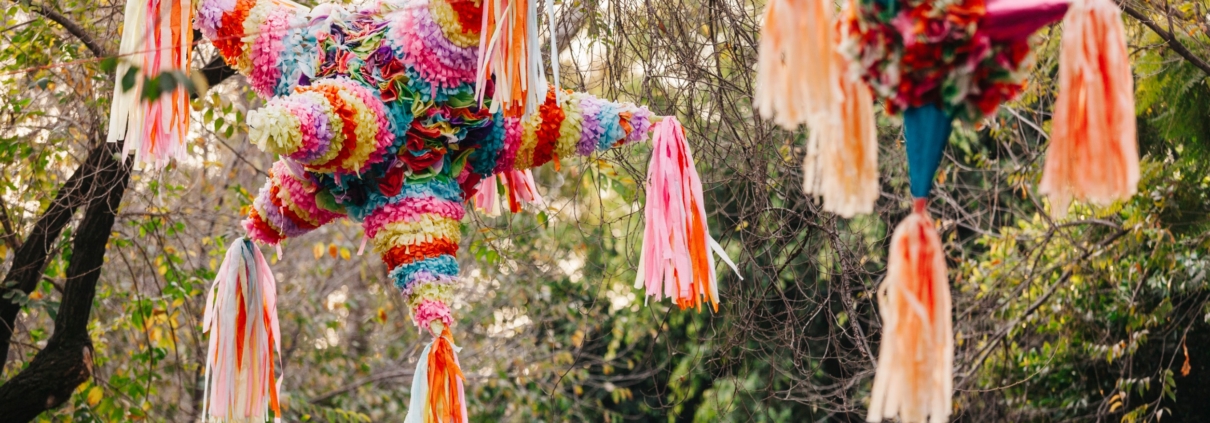Celebrating Posadas: A Journey of Tradition and Joy
Celebrating Posadas: A Journey of Tradition and Joy
Hola, amigos! Today, I’m thrilled to whisk you away on a cultural odyssey to explore the vibrant tradition of Posadas, a cherished celebration deeply rooted in the heart of Latin America, particularly in Mexico. This enchanting festivity, brimming with history, faith, and community spirit, is a true testament to the region’s rich cultural tapestry. So, grab your sombrero, and let’s dive into the world of Posadas!
Origin: A Tale of Faith and Folklore
The story of Posadas begins over 400 years ago in colonial Mexico. Stemming from the Spanish word posada (inn or lodging), this tradition finds its genesis in the Nativity story. It reenacts Mary and Joseph’s arduous journey to Bethlehem and their quest for a safe haven (or posada) to welcome baby Jesus.
Originally, Posadas were primarily religious events, deeply embedded in the Christian faith. Catholic missionaries, blending indigenous customs with Christian beliefs, introduced this celebration as a way to teach the Nativity story. This fusion of cultures created a unique tradition that thrived and evolved, reflecting Mexico’s colorful heritage.
The Story: A Festive Procession of Song and Celebration
The heart of Posadas lies in the nightly processions held from December 16th to the 24th, leading up to Christmas Eve. Picture this: a lively group of neighbors, friends, and family members, each playing a part in this moving pageant. They journey from house to house, singing traditional villancicos (carols), symbolizing Mary and Joseph’s search for shelter.
At each stop, the group sings a call-and-response song, where the ‘innkeepers’ inside the house refuse entry, until finally, one home opens its doors. This moment of acceptance is met with joy and relief, mirroring the Nativity story’s climax.
Current Cultural Uses: A Fiesta of Community and Joy
Today, Posadas have transcended their religious origins to become a broader cultural celebration, synonymous with Mexican hospitality and community spirit. These events are a whirlwind of activities that cater to all ages.
Children’s Delight
For children, the highlight is often the piñata – a brightly colored paper-mâché creation, usually in the shape of a star with seven points, each symbolizing the seven deadly sins. The act of breaking the piñata, while blindfolded, represents the struggle against temptation and evil. And, of course, the candies and fruits that spill out are a sweet metaphor for the rewards of faith.
Culinary Fiesta
No Posada is complete without a feast! The spread includes traditional dishes like tamales, buñuelos (a type of fritter), and warm ponche (fruit punch). These delectable treats are more than just food; they’re a way to savor the flavors of history and tradition.
Community Bonding
Above all, Posadas are about bringing people together. In a world where we’re often caught up in the hustle and bustle, Posadas offer a chance to pause, reflect, and connect with our neighbors, friends, and family. It’s a celebration that reinforces bonds and nurtures community spirit.
Conclusion: A Legacy of Joy and Unity
As a culture enthusiast and a globetrotter, I find the essence of Posadas truly captivating. It’s not just a series of events; it’s a living, breathing tradition that encapsulates the joy, faith, and communal spirit of a people. Whether you’re a believer or just a lover of vibrant cultural experiences, participating in a Posada is an unforgettable experience that speaks to the heart of what it means to be part of a community.
So, this holiday season, why not take a leaf out of Mexico’s festive book? Gather your loved ones, share stories, sing a carol or two, and maybe, just maybe, find your own version of a posada in the warmth of shared moments.
¡Felices Posadas, everyone! Let’s celebrate and keep the spirit of community and joy alive!
To learn how to make a piñata, check our blog post here.

Founder and Director of Education at Language Kids.
M. Ed.



Leave a Reply
Want to join the discussion?Feel free to contribute!